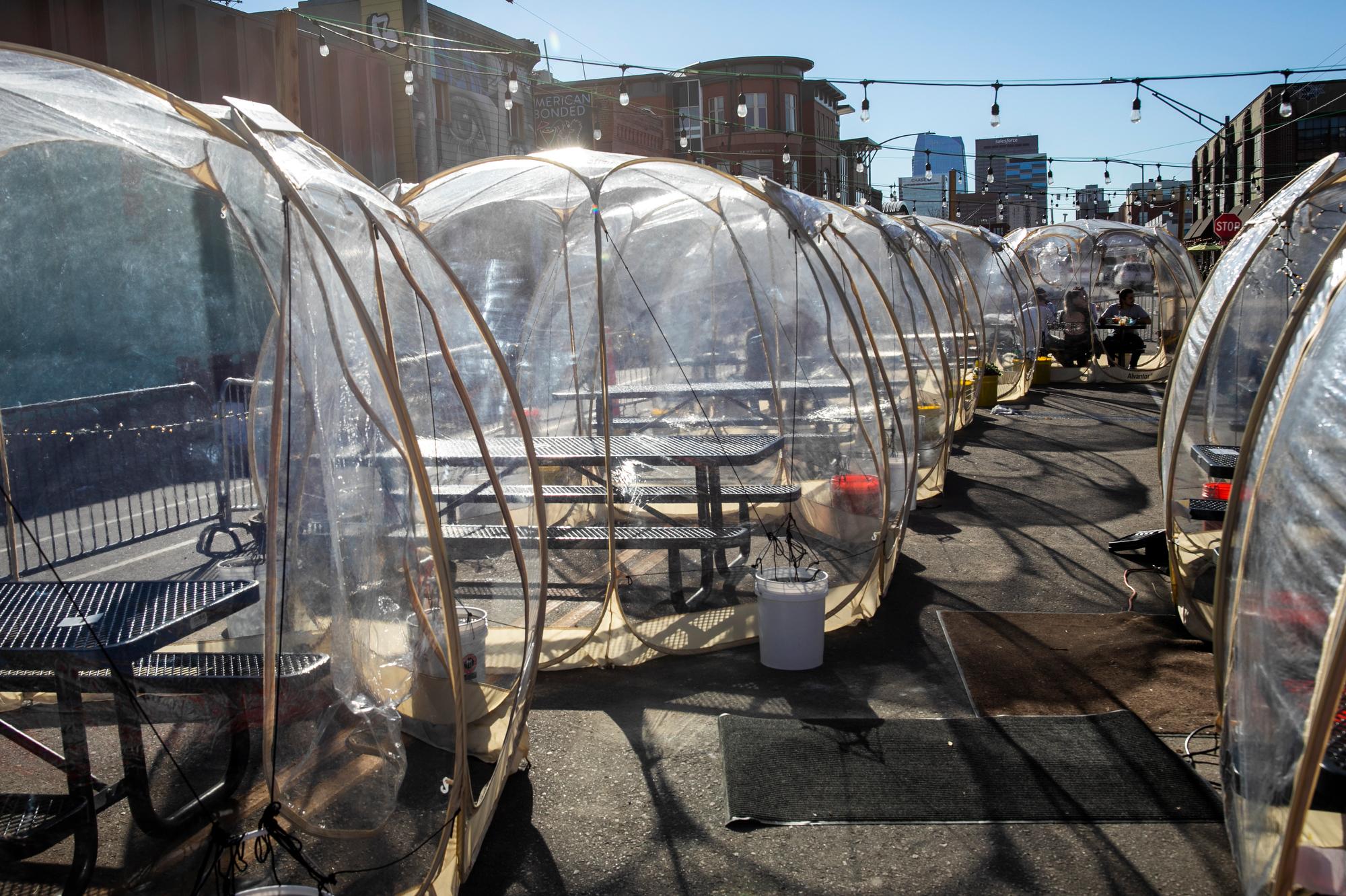
Restaurants and shops in Summit, Douglas and Larimer counties can now apply to allow more diners and shoppers inside as long as they tighten their COVID-19 safety measures.
The three counties are the first to be approved for a new state certification program launched Dec. 17. Mesa County started a pilot version of the 5 Star State Certification Program earlier in the summer.
To qualify, businesses must set up extra safety precautions on top of what is already required by law. Certified businesses will get to expand their operations in exchange, according to the Colorado Department of Public Health and Environment.
The variance program is voluntary, and each of Colorado's counties must opt-in and be approved to operate their programs, as Summit, Douglas and Larimer counties have done. Municipalities can also apply.
Recently, 134 restaurants were approved under Summit County's program and could resume indoor dining. Shortly after announcing the approval of its own application Wednesday, Larimer County said 40 businesses had already submitted pre-applications and that 20 others will undergo inspections next week.
The state has received three other county applications, but officials said they would not release the names of those counties until a decision has been made. Bob McDonald, Denver's public health executive, noted a few days before Christmas that the city has started an application of its own.
- Colorado Businesses Trade Better Health And Safety Practices For Less Stringent COVID-19 Restrictions
- Ski Resorts Like Telluride Are Trying To Thread A Needle To Stay Open Through Pandemic
- Downtown Colorado Springs Feels The Weight Of A ‘Make-It-Or-Break-It’ Holiday Shopping Season
- Pitkin County Wants You To Visit — But Only If You’ve Recently Tested Negative For COVID-19
- Critics Question Push To Expand ‘5-Star’ Program That Exempts Businesses From Certain Coronavirus Restrictions
To win approval, counties or cities must set up an administrative committee with a local public health agency to oversee their program and enforce public health rules, according to Mara Brosy-Wiwchar, chief of staff to the executive director of CDPHE.
Treatment Or Toxin?
Proponents of the variances say the program gives consumers more confidence that certified businesses are following sanitation and mask-wearing rules, and are therefore more encouraged to go out to eat or shop.
"The most helpful part of it is that people can just feel safer coming to our restaurant," said Maxwell Weckerly, whose family owns Ocotillo Restaurant and Bar in Grand Junction. Ocotillo received one of Mesa County's pilot variances after the restaurant instituted new sanitation and contact tracing practices.
"Having that official stamp of [the variance program] just helps people feel more secure coming to eat here," Weckerly said. "They know we are following the rules."
Critics argue there is little evidence to show the program can reduce the spread of COVID-19 at all. Since the program invites people to gather in restaurants and shops, they say it could actually exacerbate the third wave of cases hitting Colorado.
Officials from El Paso County sent a letter on Dec. 20 to Gov. Jared Polis saying the program is too expensive for local governments and business owners. The signatories include Colorado Springs Mayor John Suthers and Colorado Springs City Council President Richard Skorman.
"The current proposal presents no cost-benefit to businesses," county officials wrote. "For example, the cost of an air-filtration system may run a restaurant $20,000, while gaining them minor increases in capacity with which to recoup that cost."
Instead, the county asked the state to allow its restaurants to operate at 25 percent of indoor capacity, arguing that cases have been declining since Thanksgiving and that residents would be safer eating in regulated restaurants than events hosted in homes. It proposed raising that cap to 50 percent capacity if cases continue to drop after two weeks.
According to the Centers for Disease Control and Prevention, gatherings of people from different households, whether in a home or in a restaurant, presents a significant risk for virus transmission.
El Paso County is at the second-highest risk level on the state's color-coded COVID-19 status dial. This means there is a severe danger of virus spread in the county. Counties with this second-highest level of risk must close indoor dining, according to CDPHE.
"Once you're a [5 Star] eligible business, you can open at a lower level capacity than where your county is on the dial," Brosy-Wiwchar said. "So if you are approved in the red level, you then can be open at orange level capacity restrictions."
That means in counties where state rules would normally ban all indoor dining — like Douglas, Summit, and Mesa — certified restaurants can operate indoor dining at 25 percent capacity with a cap of 50 people
Officials from the Colorado Springs Chamber said they are in discussions with the state to find a compromise, but no official decisions were likely to come before the Christmas holiday weekend.









